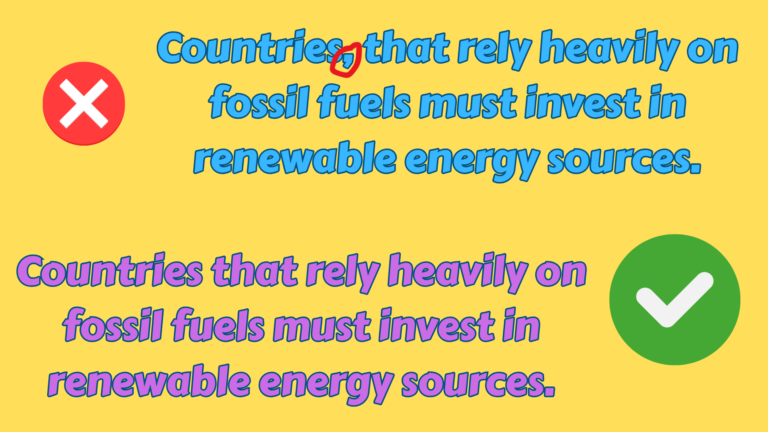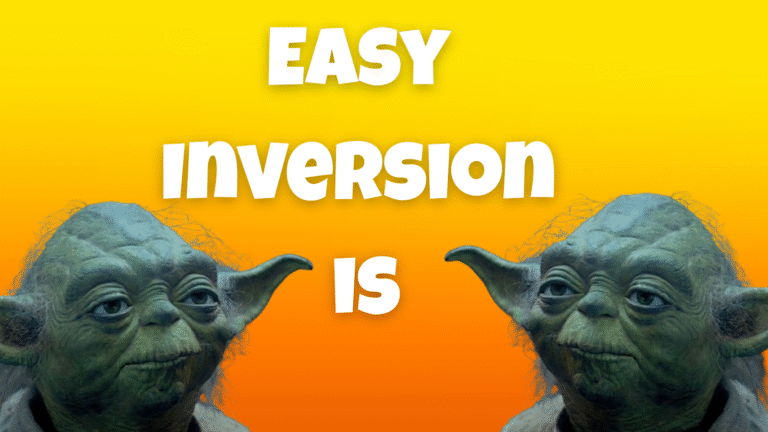- Starting a conversation or new topic:
- “Well,” (e.g., “Well, I think…”)
- “So,” (e.g., “So, I think that’s why movies at home are better than in the cinema?”)
- “Anyway,” (e.g., “Anyway, as I was saying…”)
2. Adding information:
- “And,” (e.g., “And then we went to the park.”)
- “Also,” (e.g., “Also, I would probably like to move to France for a year.”)
- “Mind you,” (e.g., “I couldn’t live in Dubai.. it’s too hot.. mind you, from November to March, it’s lovely!”)
- “On top of that,” (e.g., “I love skateboarding and mountain biking because of the adrenaline.. football and basketball are great team sports.. On top of that, I do enjoy racket sports like paddle or squash.)
- “Apart from that,” (e.g., “I think learning languages from a young age can be great for general communication skills.. And I feel like the kids become a bit more culturally aware.. Apart from that, I reckon they pick up other skills faster.)
NOTE: Furthermore, moreover, in addition, and additionally are more formal and aren’t as common in speaking compared to the above.
3. Contrasting or changing the subject:
- “But,” (e.g., “But I don’t think it really matters.”)
- “However,” (e.g., “However, it’s important to consider…”)
- “On the other hand,” (e.g., “On the other hand, it might be risky.”)
4. Explaining or clarifying:
- “I mean,” (e.g., “I mean, it’s not that difficult.”)
- “You know,” (e.g., “You know, it’s like…”)
- “In other words,” (e.g., “In other words, we need to act fast.”)
5. Giving examples:
- “For example,” (e.g., “For example, look at this case.”)
- “Like,” (e.g., “Like the time we went to Paris.”)
6. Expressing cause or result:
- “Because,” (e.g., “Because it’s raining, we should stay inside.”)
- “So,” (e.g., “So, we need to hurry.”)
7. Summarising or concluding:
- “Basically,” (e.g., “Basically, we finished on time.”)
- “At the end of the day,” (e.g., “At the end of the day, if you’re a good friend, you’ll be there for them when they need you”)
8. More Conversational ways to say ‘Firstly’ or ‘To begin’:
- “First off,” (e.g., “First off, I think the government can…”)
- “First of all,” (e.g., “First of all, we have to support our doctors and nurses.”)
The phrases “I think” and “I reckon” are often used interchangeably to express personal opinions or beliefs, but they have some differences in usage and connotation.
For things you know or have a clear position on, DON’T use ‘I reckon‘ or ‘I’d say’.
E.g. You could say “I think football is better than basketball” but you can’t say “I’d say/ I reckon football is better basketball.”
This is because you have a clear and solid position or belief. ‘I reckon‘ and ‘I’d say‘ are used more to guess, to estimate, to imagine.
“I think”
- Usage: “I think” is the more common and neutral phrase, suitable for both formal and informal contexts. It conveys a personal belief or opinion.
- Examples:
- “I think Marvel is better than DC.”
- “I think it’s a good idea.”
“I reckon” or “I’d say”
- Usage: “I reckon” or “I’d say” are more informal and they key difference is that it can be used to imply a degree of speculation or estimation.
- Examples:
- “I reckon my sister will move abroad at some point.”
- “I’d say AI will make life easier in many ways.”
Examples:
- There are many cafes in my city-> There are piles of cafes in my city.
- I spent a lot of time with my siblings-> I spent loads of time with my siblings
Lack of Phrasal verbs are often why students are stuck on 6/6.5
Which ones? Make sure you know:
i) The basic ones: wake up, get up etc and
ii) High frequency phrasal verbs: come across, bump into, get on with/ get along with, figure out, meet up with, cut down on, keep up with, hang out with, check out, get rid of, look up, take care of/ look after, walk around, stand out, go out, chill out, work out, binge on
Native speakers use ‘head‘ instead of ‘go‘ all the time.
Examples:
- -I usually head to the gym after work.
- -I’m heading to Greece for my holidays this year.
- -I headed over to my mate’s house for dinner.
- -I always pop into my favourite cafe when I head into town.
Native speakers often say ‘mate‘ instead of ‘friend‘.
Examples:
- -My mate introduced me to poker.
- -I’ve known John since primary school; he’s definitely one of my best mates!
Examples:
- -I waited on the bus for ages.
- -I’ve known her for ages.
- -I’d love to be able to surf, but it takes ages to get good at it.
Here are the most common ones:
- Neat and Tidy:
- “Her room is always neat and tidy.”
2. Sick and Tired:
- “I’m sick and tired of the constant rain.”
3. Sooner or Later:
- “Sooner or later, you’ll need to make a decision.”
4. More or Less:
- “The project is more or less finished.”
5. Part and Parcel:
- “Delays are part and parcel of construction work.”
6. Live and Learn:
- “I made a mistake, but you live and learn.”
7. Rules and Regulations:
- “We have to follow the rules and regulations.”
8. Hustle and Bustle:
- “I love the hustle and bustle of the city.”
9. Wear and Tear:
- “The car shows signs of wear and tear.”
10. Step by Step:
- “We’ll solve the problem step by step.”
11. Bits and Pieces:
- “She picked up bits and pieces from the market.”
12. Peace and Quiet:
- “I need some peace and quiet to study.”
13. Pros and Cons:
- “Let’s weigh the pros and cons before deciding.”
14. Ups and Downs:
- “Every relationship has its ups and downs.”
15. Done and Dusted:
- “The project is done and dusted.”
16. Black and White:
- “The issue isn’t black and white.”
17. Now and Then:
- “I go jogging every now and then.”
18. All in All:
- “All in all, it was a great trip.”
19. Wait and See:
- “We’ll have to wait and see what happens.”
Don’t say “I’d like to tell you about…“.
Instead, say “The ____ which/who comes to my mind is...“
- -The memorable holiday which comes to mind is Porto with my family last year.
- -The relaxing place which comes to my mind is the spa near my house.
- -The wise person who comes to my mind is my grandmother.
It’s not good to just stop talking abruptly in your part 2 speech. When you have nothing more to say or you feel like the time is nearly up, summarise using “so all in all“.
- So all in all, the holiday was well worth the money!
- So all in all, she’s my biggest inspiration.
- So all in all, if you want relaxation, this cat cafe is the spot to go to!
‘Get‘ is colloquially for saying ‘understand’, and can convey a sense of empathy or shared experience, implying a deeper or more intuitive understanding.
Examples:
- I get why many of my friends are moving abroad- the lifestyle is so much better.
- I don’t get why schools are still teaching students the old-fashioned way of learning languages.
- “I finally get why everyone talks about Lord of the Rings; it really is amazing!”
- “I get why people prefer working from home; it’s much handier and more comfortable.”
These are some which I find can be frequently used in IELTS speaking:
- Once in a blue moon: How often do I go shopping in the city centre? –Once in a blue moon honestly! I get all my stuff online!
- Over the moon: One of my biggest achievements was completing a marathon. All my friends and family were over the moon for me.
- Sit on the fence: I don’t like to sit on the fence but I think both ways are good and can work.
- To wrap you head around something: I can’t wrap my head around how the internet connection is still so inconsistent in this day and age!
- Hit the books: I usually hang out with my friends either on a Friday or Saturday and then hit the books Sunday and get organised for the week ahead.
We use ‘crazy‘ a lot, but if you want to stand out to the examiner, they will definitely take notice.
- Mental: It’s absolutely mental how quickly technology is evolving!
- Nuts: All the parties my friend Mike invites me to are absolutely nuts!
- Mad: I think it’s mad how we spend huge amounts of money on government ceremonies when hospitals and clinics are so underfunded.
- Wild: I think Dubai is absolutely wild! I mean how have they built what they’ve built in a desert!
The previous words are adjectives. However, we can use the phrase ‘to blow one’s mind‘ to convey craziness or disbelief.
- To Blow one’s mind: The pyramids blow my mind. How did they do it!
‘Annoy‘ is the most common, but try substituting this phrase to show more annoyance.
Examples:
- -I live in a noisy residential area, so my neighbours are always doing my head in.
- -There was a guy eating really loudly in the library when I was studying, which it did my head in.
- -It really does my head in when my colleagues don’t get back to me with a simple yes or no answer.
There are many instances in the speaking test where we give our thoughts on the future, and you might add a hope or wish. E.g. “I think AI will change the way we live. Hopefully in a good way!” or “I think I’ll move to the UK long-term. Hopefully it all works out!”
Switching ‘hopefully‘ to ‘fingers crossed‘ is a very simple and effective way to show idiomatic language:
- Fingers crossed my friend will be able to come visit me!
- I hope the government can do something about the rising house prices! Fingers crossed!
- There are a lot of countries with high inflation rates. Fingers crossed we can keep ours low!
These terms are very flexible.
You can use them as adjectives. E.g. I went to a party recently, which was good banter!
You can use them as nouns: The party was awesome. We had great banter!
You can use them to describe people (“He’s good craic” = he’s good fun), places (“Ibiza is great craic“) or situations (“We were all laughing like mad! It was great craic!”)
In IELTS, you could describe people who are hilarious, fun or funny situations that you found yourself in, trips, concerts, events etc
Don’t describe movies or books as ‘good craic/ banter’
Common words with ‘dead’
–Dead easy & dead hard (Sounds weird to say ‘dead difficult’): “Some people think the IELTS test is dead hard!”
–Dead handy (Sounds weird to say ‘dead convenient’): “The metro is about 50 metres away from my house, which is dead handy!”
–Dead wrong & Dead right (Sounds weird to say ‘dead correct’ & ‘dead incorrect’): I thought bats were completely blind, but I was dead wrong! / “My mum said learning Chinese would be difficult, and she was dead right!”
–Dead certain & Dead sure: “I was dead certain I wanted to move abroad, but since arriving, I think I want to go back home!”
–Dead quiet/ dead silent (Sounds weird to say ‘dead noisy’ & ‘dead loud’): “I don’t like living alone- it’s dead quiet!”
–Dead serious & Dead relaxed: I’m super relaxed, but my mum is dead serious.
–Dead gorgeous (Sounds weird to say ‘dead beautiful’): “I saw a dead gorgeous girl at the airport”
Dead broke: Completely out of money. Example: “After the vacation, I was dead broke.”
These phrases are great to express a number of things to the examiner: . Acknowledging Limited Information; Reducing certainty; to be polite and cautious; and managing expectations.
Examples:
- As far as I know, LSE is considered to be a top uni in London.
- As far as I’m aware, people in Japan and China are pretty stressed out from their work environments.
- To the best of my knowledge, our city has quite a few elite sports facilities that are open to the public.
- It’s quite humid in Vietnam in March, as far as I know..
- I’d love to go to Hong Kong, but it’s pretty crowded, as far as I’m aware.
- The government is trying to go carbon-neutral by 2050, to the best of my knowledge.
We often say :I have no idea…”, but we can say this more idiomatically: “I have no clue“.
Examples:
- -I haven’t a clue what I’m going to do after my degree.
- -I help my mum with technology stuff because she hasn’t a clue!
- -I don’t think our government have a clue what they’re doing!
- -I was so bad at Maths in high school- I really hadn’t a clue!
Sometimes in IELTS, you get questions that are a bit trickier/ require some thought, and native speakers often react to those questions. Here are some common ones you can try!
- Goodness me!
- Good grief!
- Man… that’s interesting.. etc.
- Oh my God/ Oh my word/ Oh my days/ Oh my goodness
Examples:
- What ways can we make our homes eco-friendly?
- Oh my goodness! Well, I guess we could maybe install solar panels? But some people don’t have the budget.. perhaps just being more conscious of switching off appliances when we’re not using them can be helpful..
2. What are some of the ways in which the government can reduce pollution in cities?
- Good grief! Well, I suppose they could start by improving public transport.. like they could incentivise it by making it much cheaper. And just even allocating money to maintain good public services.
3. Where would you like to go for vacation?
- Oh my word! Well, I’ve always wanted to visit Japan and explore its culture and scenery.
4. What types of clothes do you like to buy?
- Man! I usually go for casual wear, like comfy jeans and cool t-shirts.
5. Do you think healthcare should be free for everyone?
- Goodness me! Yeah, I think healthcare should be free so everyone can get the treatment they need.
6. What can be done to help those in poor areas?
- Oh my days! Providing better education and healthcare would really help improve their lives.







